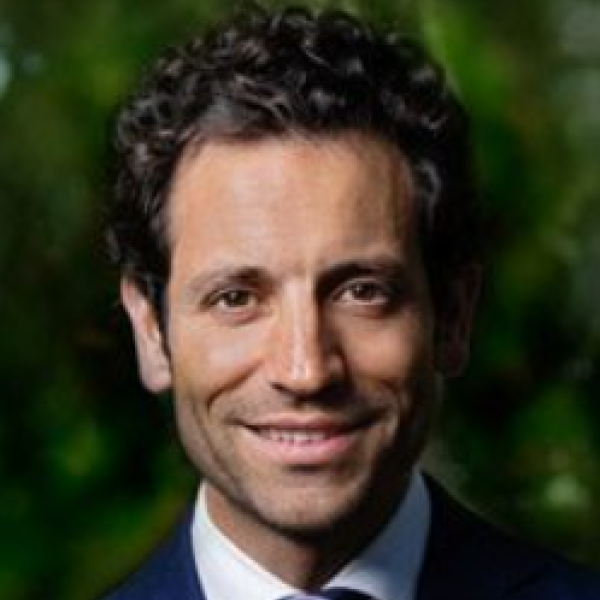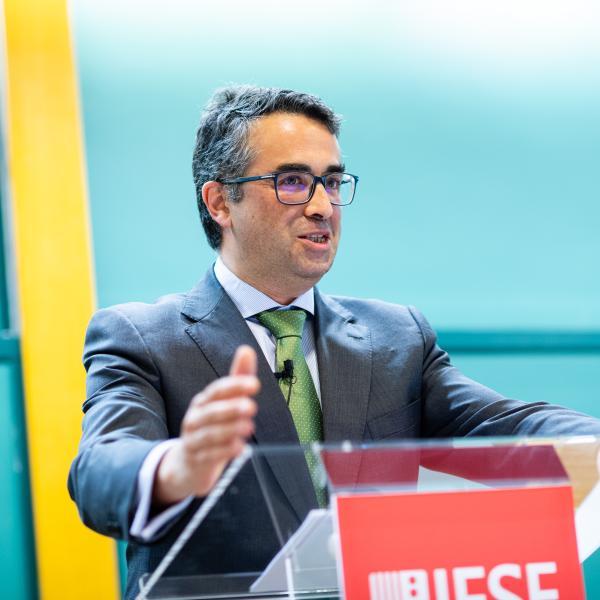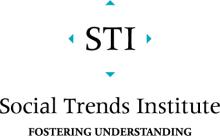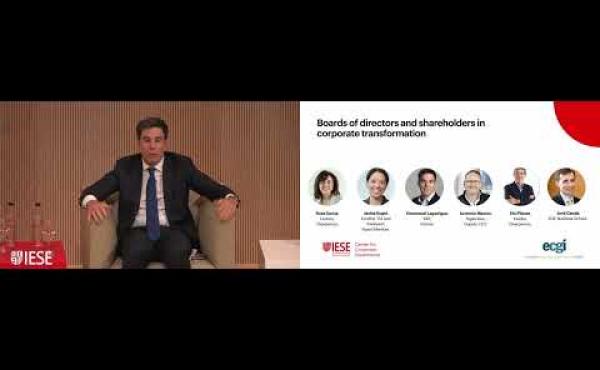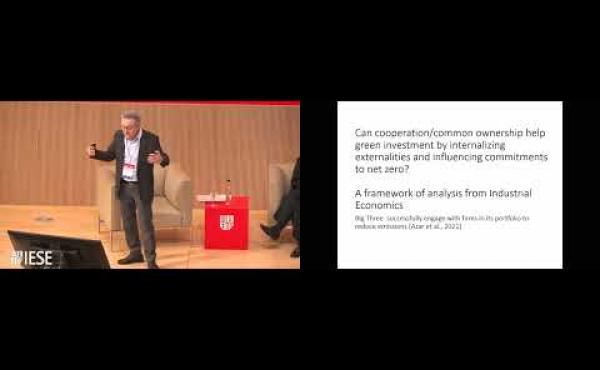
Shareholders’ Role and Responsibilities in Times of Corporate Disruptions
This conference addressed a range of topics regarding the role and impact of shareholders on governance and strategic decision making, including decarbonization, divestments, technology and IT adoption, among others. Most companies today are facing major disruptions in products, markets and business models and will need to adopt strategic decisions and allocate additional resources to speed up their transformation. In this context, a critical question is how effective different types of shareholders are in supporting companies in their necessary evolution, not just by providing financial resources through equity, but also contributing in other ways.
Several significant reflections emerged during the conference sessions and discussions. The first is that shareholders’ time horizons should be compatible with the company’s time horizons, particularly, with investment plans. By definition, each shareholder and each company -even within the same industry- has different time horizons. Responsible investors should make sure that their plans and horizons are compatible with what the company needs to achieve. The potential misalignment in this dimension will distort expectations and can have terrible effects on companies and investors alike.
The second reflection concerns the critical role of shareholders in providing companies with effective corporate governance models and making sure that they work, especially the board of directors. Family businesses and private equity firms that control a relevant percentage of a firm’s shares are usually more committed to supporting good corporate governance, and often take an active role in it. The risk that this creates is that they may govern the company for their own benefit, not for the benefit of the company as an institution or of the other minority shareholders.
On the other hand, institutional shareholders, with less concentrated ownership, play a critical role by providing access to organized capital markets for millions of savers around the world in a simple way. Nevertheless, the fact that most institutional investors do not invest significant time and resources engaging with a firm’s governance is a serious flaw of this ownership model. They simply rely on other shareholders or proxy advisors. This pathway may work for them, but it does not provide a good service for the company and society at large. Firms need committed shareholders that truly care about the firm’s good governance.
The third reflection centers on the role of shareholders in providing a unique view of the firm and its project to all stakeholders. Corporate purpose can play a role in this process and help firms restore their reputation. In family businesses, corporate purpose grows out of the dreams and ideas of the founder. In more mature companies, purpose may emerge out of ideas that CEOs have about how to make their firm unique.
A good purpose also highlights how the firm plans to serve customers differently, as well as the social needs related to the products and services that it offers and cares about. In this respect, purpose is different and goes beyond environmental and social regulation. A functional purpose should connect with the firm’s strategy, business model and policies. To do so effectively, the firm’s shareholders must support its purpose. A key function of ownership is to understand not only the business model, but also the type of company being invested in and its purpose.
The fourth reflection is that responsible shareholders have many tools and levers to make sure that the board is performing well and taking care of the future of the firm. The board’s proposals to shareholders, particularly those regarding board composition and board member nomination, CEO and senior executive compensation are critical. Ordinary shareholders, especially institutional shareholders, should not wait for the arrival of an activist hedge fund to engage with the board, often in an aggressive way. Ordinary shareholders should make sure that the board fulfills its governance functions professionally.
A competitive company needs a competent governance model supported by shareholders. The latter should use their power to make companies more competitive and innovative, so that they can become engines of economic prosperity and social flourishing.
---------------------
📆 Conference details:
Monday, 31 March 2025, 09.00 - 18.30 (CEST)
📍 Conference Location:
Madrid Campus Camino del Cerro del Águila, 3, 28023, IESE Business School, Madrid, Spain
Note: This is an in-person event. Recordings will be published on the ECGI website.
There is no fee for registration.
For more information please see here
Programme
Welcome & Introduction
Speaker(s)
Coffee Break
Lunch
Coffee Break
Wrap Up
Speaker(s)
Cocktail Reception
Speakers
Marco Becht
Jordi Canals
Jill Fisch
Colin Mayer
Presentations
Organised by


Contact



























